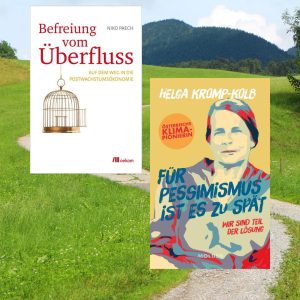A pesticide cocktail for Mother's Day

The environmental protection organization GLOBAL 2000, together with the Upper Austrian Chamber of Labour, had bouquets of flowers tested for pesticide residues shortly before Mother's Day. An independent laboratory tested 16 samples from nine suppliers for over 600 different pesticides, some of which pose serious health risks. The results: Alarming! All samples were contaminated. 32 pesticides on an ostrich were the alarming maximum value.
Bouquets of flowers - a gift from the heart - bring great joy to many people. But: they can also be carcinogenic or harmful to reproduction or disrupt hormone balance. These are just some of their possible effects. Particularly worrying: 14 or more pesticide substances were found in two thirds of the bouquets tested.
These pesticide cocktails are particularly problematic, as the toxicity of individual substances in the mixtures can increase significantly. These interactions between pesticides have not yet been sufficiently investigated and are not part of the approval process.
"In our test, we didn't find a single bouquet that wasn't contaminated with pesticides. 32 different pesticides on a bouquet of flowers - who would want to give something like that to their mother?" says GLOBAL 2000 pesticide expert Dr. Waltraud Novak . "Some of the active ingredients found pose serious health risks. Carcinogenic, harmful to reproduction or disruptive to hormone balance are just some of the possible effects."
Particularly worrying: 14 or more pesticide substances were found in two thirds of the bouquets tested. These pesticide cocktails are particularly problematic, as the toxicity of individual substances in the mixtures can increase significantly. These interactions between pesticides have not yet been sufficiently investigated and are not part of the approval process.
Bouquets come from Kenya, Tanzania or Ecuador
Cut flowers for Mother's Day usually come from countries such as Kenya, Tanzania or Ecuador. European regulations do not apply there, and workers on the flower farms often have to handle toxic substances without protection. The indications of origin on the bouquets examined left a lot to be desired: either there were none at all or the Netherlands was indicated as the origin of the flowers. This is permitted, as the flowers are imported into the EU via Rotterdam.
A bouquet of tulips from Austria, in which only one pesticide active ingredient was detected, attracted positive attention. It is particularly alarming that bouquets with the Fairtrade label are also heavily contaminated with pesticides.
Lack of import regulations
Novak sees the basic problem as being that there is no law in Europe that regulates pesticide residues on ornamental plants. The lack of import regulations even opens the door to pesticides that are no longer allowed to be used in the European Union. Three quarters of the samples tested contained active substances that are not permitted in the EU.
These include substances of particular health concern such as carbendazim, chlorpyrifos and iprodione. The former has not been approved for a decade, as carbendazim is classified as mutagenic and harmful to reproduction. It can cause genetic defects, impair fertility and even damage the child in the womb.
"Cut flowers usually come from countries such as Kenya, Tanzania or Ecuador for Mother's Day," explains Novak. "European regulations don't apply there and the workers on the flower farms often have to handle the toxic substances without protective clothing."
Rapid implementation required
GLOBAL 2000 is therefore calling on the Ministers of Agriculture and Health to advocate the rapid introduction of legal limits for ornamental plants and cut flowers at EU level. The export ban on non-approved pesticides envisaged by the EU must also be implemented quickly. "The necessary steps must finally be taken to protect workers and consumers alike," appeals Novak.
Best to pick yourself or buy organic
There are alternatives to these imported plants:
- Picking a meadow bouquet yourself is the best option of all.
- Locally grown flowers are more recommendable because local businesses are subject to EU standards. In this way, we also support small, regional suppliers and nurseries.
- Organic plants from organic cultivation are grown without synthetic chemical pesticides.
- In Austria, there are already some so-called "Slowflower" companies that produce domestic bouquets guaranteed without pesticides.
Last but not least, the major retailers also have a responsibility to offer flowers whose production and trade do not poison the environment and endanger human health," concludes Novak.






